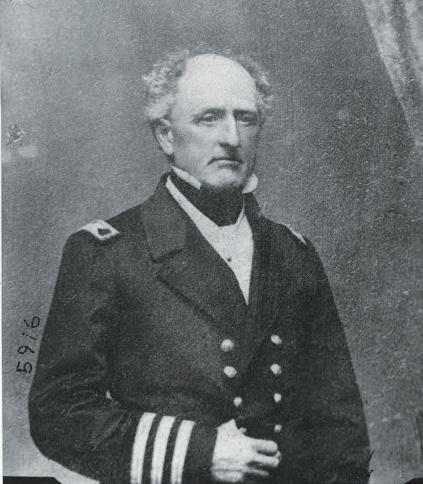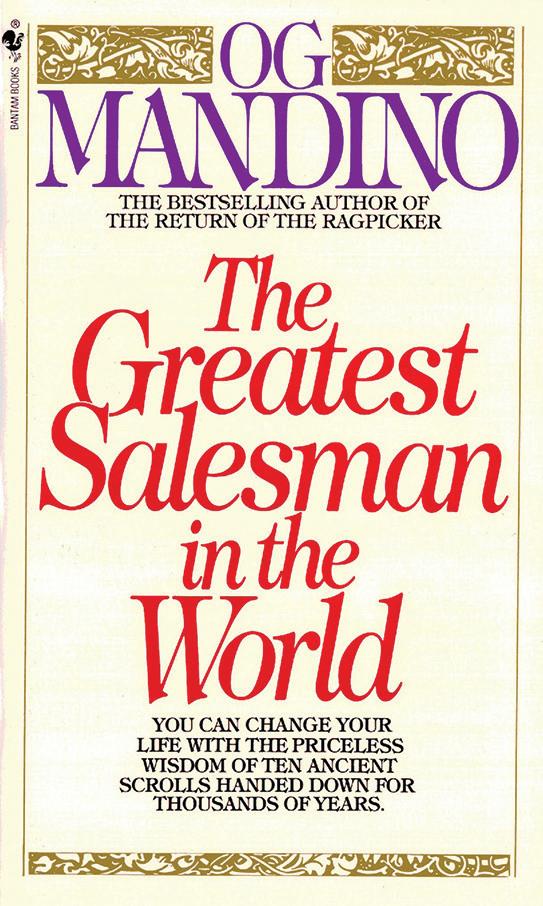
9 minute read
Oxford Map and History
Oxford is one of the oldest towns in Maryland. Although already settled for perOxford haps 20 years, Oxford The Strand Tilghman St. Market St. High St. East St. Division St. Oxford Road Benoni Ave. Pleasant St. Robes Hbr. Ct. South Morris Street Bachelor Point Road Pier St. E. Pier St. Bonfield Ave.Third StreetJack’s Pt. Rd.First Street 2nd St. W. Division St. Caroline St.West St. Tred Avon Ave. Myrtle Ave. Sinclair St. Richardson St.South Street Town Creek Rd. Wilson St. Stewart Ave. Norton St. Mill St. Jefferson St. Banks St.Factory St.Morris St. Oxford Community Center Oxford Park Bellevue Ferry T r e d A v o n R i v e r Town Creek Oxford To Easton 333 8 1 2 3 7 9 10 11 13 15 16 17 18 19 4 56 12 14 © John Norton marks the year 1683 as its official founding, for in that year Oxford was first named by the Maryland General Assembly as a seaport and was laid out as a town. In 1694, Oxford and a new town called Anne Arundel (now Annapolis) were selected the only ports of entry for the entire Maryland province. Until the American Revolution, Oxford enjoyed prominence as an international shipping center surrounded by wealthy tobacco plantations. Today, Oxford is a charming tree-lined and waterbound village with a population of just over 700 and is still important in boat building and yachting. It has a protected harbor for watermen who harvest oysters, crabs, clams and fish, and for sailors from all over the Bay.
For a walking tour and more history visit https://tidewatertimes. com/travel-tourism/oxford-maryland/.
McKean sailed the Pacific together aboard USS Constitution.
During Franklin’s absence, Nannie convinced her brother Edward to buy Ferry Farm estate, six miles south of Wye House on the Miles River, for the cash-strapped Buchanans. Buchanan spent his time ashore with Nannie and their nine children in the manor house named The Rest, served by a number of enslaved “servants.”
In his in-laws’ social circle, he began using the term “Yankee” disparagingly, denoting cunning or lack of honor, not a fellow countryman. His father had belonged to the Anti-Slavery Society, but Buchanan’s sympathies had definitely “gone South.”
When the question of secession came to a head in the 1860 election, Lincoln received two Talbot County votes. At the time, Buchanan held a prestigious position as commandant of Washington’s Navy Yard. Lincoln’s March 4 inauguration fell one month before the scheduled wedding of Buchanan’s twenty-year-old daughter, Nannie. Protocol dictated that the president be invited to the Yard and treated courteously by the commandant.
In the biography Confederate Admiral, Craig Symonds describes the bride’s kid sister, fifteen-yearold Elizabeth, declining to shake
202 Morris St., Oxford 410-226-0010 30 Years in Business We Know Books!
BOOKSELLERS
“Happy and Healthy 2021” Thanks for your Loyal support
Friday - Sunday 10-3, Monday 10-2 *Listen Fri. mornings on WCEI 96.7fm *20% off your book clubs’ books *Books of all kinds & Gifts for Book Lovers *Special orders & Book Gift Baskets *Online ordering & e-newsletter @ www. mysterlovescompany.com


Lincoln’s hand. She may have been the youngest, but she likely was not the first to shun the guest of honor. Lincoln smiled at Elizabeth and called her a “little rebel,” ultimately charming her into offering her hand. After the ceremony, Lincoln escorted the bride in to dinner and officiated at cutting the cake.
Scarcely two weeks later, on a Friday, the Pratt Street Massacre killed four troopers and twelve civilians. Over that weekend, assuming Maryland would secede, Buchanan prepared his resignation letter while simultaneously preparing the Navy Yard against attack. Monday morning, he delivered his resignation to Secretary of the Navy Gideon Welles, vowing he
Fresh Muffins Daily Homemade Soups Sandwiches & Salads Frozen Meats · Groceries Breads · Cold Cuts Beer · Wine · Liquor 410-226-0015 203 S. Morris St., Oxford


would “not take part in defence of this Yard from this date.”
Ambivalence was not a quality normally associated with Buchanan, but his background positioned him squarely on all sides. Within days, when Maryland had not left the Union, he decided he’d acted hastily. Attempting to withdraw his resignation, he wrote Welles, “I am ready for service,” but requested assignment abroad. Welles replied, “By direction of the president, your name has been stricken from the rolls of the Navy.”
Lincoln’s administration denied withdrawing officers their right to resign, simply discharging them and nullifying pension eligibility. After forty-five years of service under the nation’s flag, Buchanan found himself discharged by a pair of civilian abolitionists.
He retreated to The Rest and spent the summer ruminating. His indignation boiled over in June. A small army detail, ordered to remove weapons from Easton’s armory, spotted cannonballs decorating Buchanan’s gateposts. “Thieves” landed at his private dock and seized these prizes, won in battle while leading troops in the Mexican War. Buchanan sought out the colonel commanding the “low lives” and prevailed on the stunned Yankee officer to have his souvenirs returned.
By July, Buchanan deemed it “pure folly for any sensible man to
Open Friday dinner, Saturday breakfast, lunch & dinner and Sunday brunch & dinner Deliciousness ToGo and delivered Friday through Sunday inclusive Ordering from our main menu and our new “Winter Comfort ToGo” CLOSED FOR THE MONTH OF JANUARY - HAPPY NEW YEAR! THE ROBERT MORRIS INN 1710 OXFORD MD 314 NORTH MORRIS STREET ٠ OXFORD ٠ 410 226 5111 WWW.ROBERTMORRISINN.COM 106
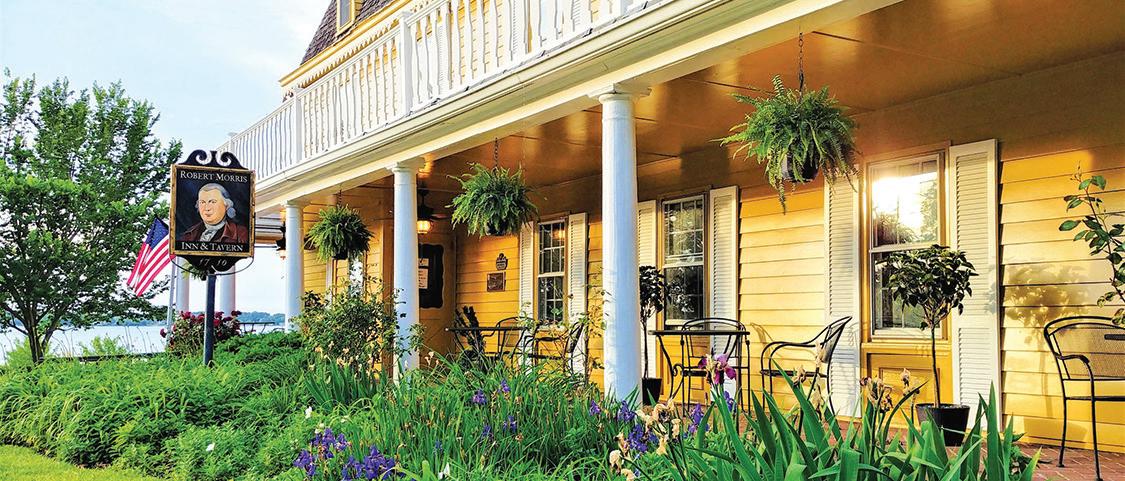
suppose that the South can be subdued.” By August, he was testing the waters for a commission in a nearly nonexistent Confederate Navy. September found him in Richmond, most senior among 120 ex-Navy officers.
The charred hull of the USS Merrimack, abandoned in Norfolk Navy Yard, constituted virtually the entire Confederate Navy. Resurrected and rechristened CSS Virginia, she was clad in ironplate and outfitted with a protruding ram and ten guns. Buchanan was given command of this experimental superweapon, which officialdom hoped might somehow even odds against the U.S. fleet.
Buchanan had dreamt of but had never been in an actual naval battle. Now he was to command the maiden voyage of an untested ironclad in the Battle of Hampton Roads. The underpowered Virginia lumbered into the Roads on March 8, 1862, guns blazing and incoming shots sliding off greased ironplating. She slowly stalked and rammed the frigate USS Cumberland, nearly being pulled under with her foe before the ram broke off.
She righted and began an awkward turn toward USS Congress, which had run aground. This immobilized frigate had little defense. Smooth-bore guns, unable to penetrate ironplate, were soon knocked out, forcing Congress to strike her colors and raise a white flag.
Tidewater Residential Designs since 1989
TIMOTHY B. KEARNS

TBKEARNSDESIGN.COM · 410.226.5100

When Buchanan sent a boat under white flag to complete formalities, troops ashore fired and wounded several of his men. Believing Congress had dishonored a flag of truce, he ordered her burned without regard to crew. On deck watching hot shot and shell set her ablaze, he grabbed a rifle and fired against the shore unit. Thus heedlessly exposed, he was struck near the femoral artery in his left thigh by an infantry bullet.
Afterwards, officers gathered in his quarters to discuss the day’s victories. From his cot, the pale captain revealed, “My brother, Paymaster [McKean] Buchanan, was on board the Congress.” By then she was engulfed in flames, which eventually reached the ship’s magazine. Congress’ final explosion was felt for miles, perhaps reaching Buchanan, who was en route to a Norfolk hospital. In his absence, USS Monitor arrived the next day and the first battle of ironclads ended in mutual claims of victory and accusations of duplicity.
Buchanan was promoted to admiral and, when recovered sufficiently, was assigned to Mobile, Alabama, southern blockade-runners’ most useful Gulf port. Construction of six ironclads was envisioned, but a shortage of resources and qualified crewmen forced Buchanan to reduce his aspirations from six to one: CSS Tennessee, outfitted and armed over a two-year struggle. Buchanan formally took command in May 1864, determined to engage the blockading fleet of his former messmate, Admiral David Farra-
CSS Virginia versus the USS Cumberland in the Battle of Hampton Roads.
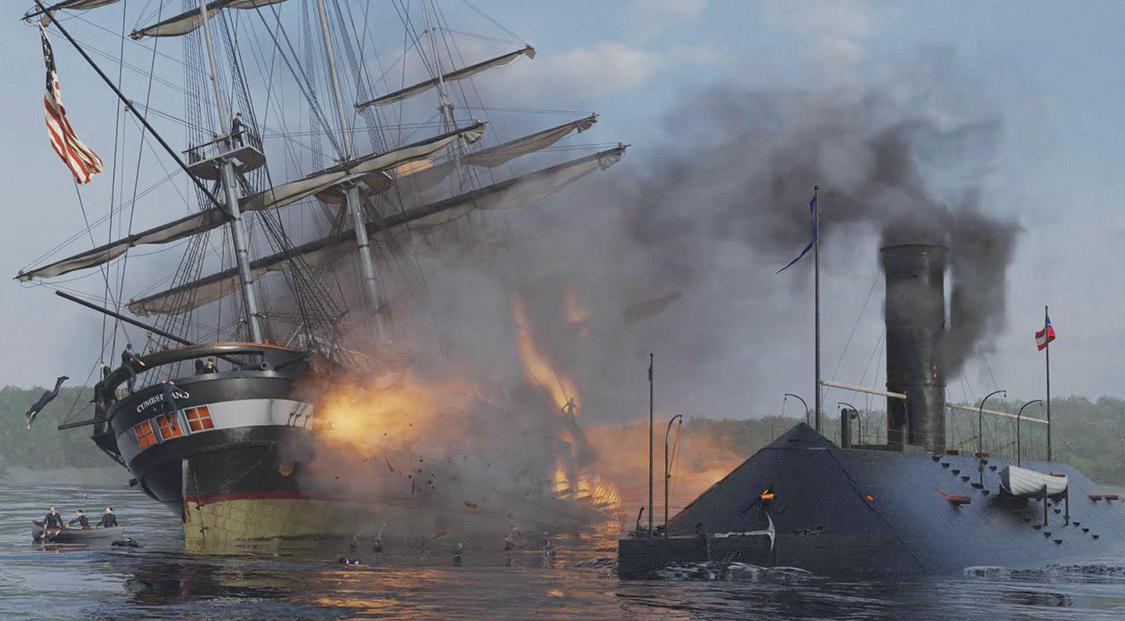

gut. (Ironically, a native of Tennessee, Farragut never considered “going South.”)
Mobile citizens watched for the clash, but after a false start, Buchanan determined it wiser to anchor and await a federal advance through mines (“torpedoes”) sown around the channel. After eight weeks, Farragut’s fleet, grown from eleven to twenty-three ships, started toward Tennessee and her three supporting wooden gunboats. Farragut lost his lead ship when it strayed into a mine. He heedlessly charged his flagship ahead, quoted as ordering, “Damn the torpedoes. Full speed ahead.”
The outcome of the ensuing battle was never in doubt. Again, Buchanan suffered a severe leg wound while taking a central role in the action. After Tennessee surrendered, Farragut afforded him every courtesy, sending Buchanan to a Florida hospital with his requested aide and two physicians.
At war’s end, imprisoned briefly
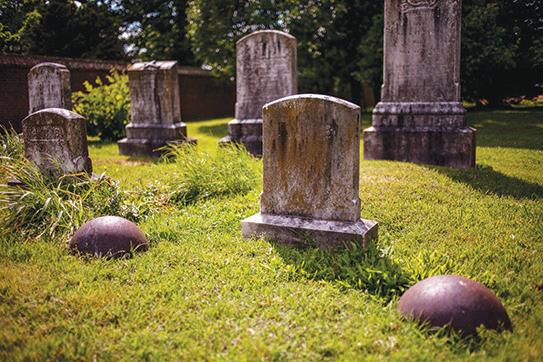
WEAVER MAVITY SHORT ASSOCIATES, LLC
Since 1982
A full range of tax and accounting services: · Individual and Business · Estates and Trusts · Non-Profits
Call us for a consultation today!
117 Bay Street, Suite F, Easton, MD • 410-820-8400 daley_weaver@verizon.net
in New York, Buchanan was visited by his brother McKean, a Congress survivor. Correspondence from Maryland family had been unreliable throughout: letters were usually run through a blockade via the Caribbean. One letter, received directly through the lines under a flag of compassionate truce, notified the admiral that The Rest had been consumed by an accidental fire. A more modest, Victorian-style Rest eventually replaced the original.
Softening a melancholy homecoming, Talbot County welcomed him as a hero. The fledgling Agricultural College of Maryland (University of Maryland) named Buchanan president, but he resigned in a dispute with the trustees after he peremptorily fired half of a fourprofessor faculty for lack of discipline.
The Admiral died at home of pneumonia May 11, 1874. He was buried in the Lloyd family cemetery, behind the Wye House orangery, with two souvenir cannonballs at the foot of his grave.
Forty-some years ago, A.M. Foley swapped the Washington, D.C., business scene for a writing life on Elliott Island, Maryland. Tidewater Times has kindly published portions of one upcoming work, Chesapeake Bay Island Hopping, along with other regional musings. Foley’s published works are described at www.HollandIslandBook.com.
Pamela P. Gardner, AIA, LLC 311 N. Aurora St., Easton · 410-820-7973 · pam@ppgaia.com www.pamelagardneraia.com







